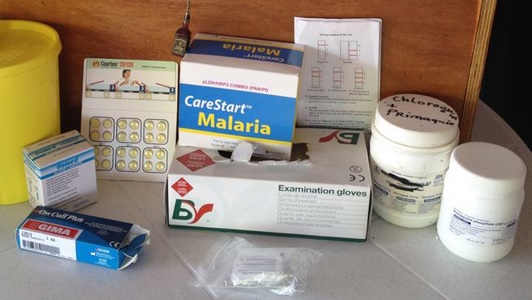
The main fear is that drug resistance in Africa will trigger the same intense transmission patterns that have been seen in South East Asia. The region has been battling drug resistance since 2007.
By Andrew Githeko (The Conversation) |
The resistance of malaria parasites to antimalarial drugs and insecticides is a growing global public health concern. The Conversation Africa’s Health and Medicine Editor Joy Wanja Muraya asked Dr Andrew Githeko to explain how African countries can maintain the effectiveness of existing malaria control strategies as they work towards its elimination. ![]()
The problem of drug resistant malaria is growing in Africa. The first case of resistance to the latest drug regimen was recorded in Equatorial Guinea two months ago. What does this mean?
There have been several more reports of drug resistance on the continent. Cases have cropped up in Angola, Liberia, Uganda and Equatorial Guinea. These show that there are serious challenges facing malaria treatment in Africa.
The main fear is that drug resistance in Africa will trigger the same intense transmission patterns that have been seen in South East Asia. The region has been battling drug resistance since 2007.
When mosquitoes become resistant to the insecticides this threatens to reverse the gains that have been made reducing the burden of malaria in endemic countries.
By 2015, malaria interventions had reduced the prevalence by 50% and the incidence of clinical disease by 40%.
Africa has used the same treatment regimens that have been used across the world. This includes:
- chloroquine which was safe, cheap and effective until the malaria parasite – plasmodium falciparum – developed resistance towards it.
- sulphadoxine pyrimethamine a drug combination which also became resistant.
- artemisinin combination therapies which is the first line recommended malaria treatment which kills the parasites in the blood of the infected person within three days.
If drug resistance is developing to the artemisinin combination therapies on the continent, it means that the burden of the disease increases.
What unique challenges does Africa face in the fight against malaria?
The strategy to fight malaria in Africa includes antimalarial drugs and several other initiatives to prevent the mosquito from infecting people. The use of insecticide treated bednets and indoor spraying have been the most widely used.
These are all targeted at the malaria vector, the mosquito. But there are two challenges.
Read the complete story at The Conversation
——
See also:
- Armyworms Ravage Crops in Southern Ethiopia
- Ethiopia Prioritizes Safe Surgery, Launches National Initiative
- African Policymakers Renew Call for Investments in TB Control
- USAID Improves the Quality of Life for People Living with HIV in Ethiopia
- Supporting Improved Access to Pharmaceuticals and Services (SIAPS) in Ethiopia: USAID
